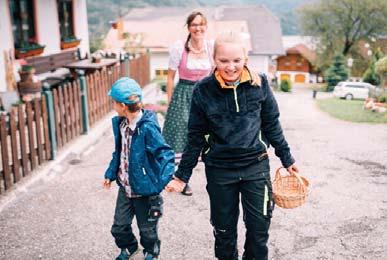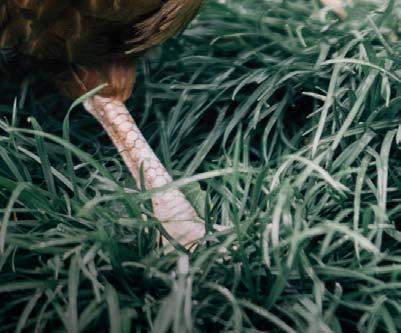
3 minute read
ONE STEP BACK
I WISH I WERE A HEN
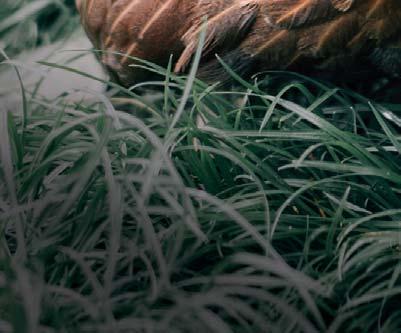
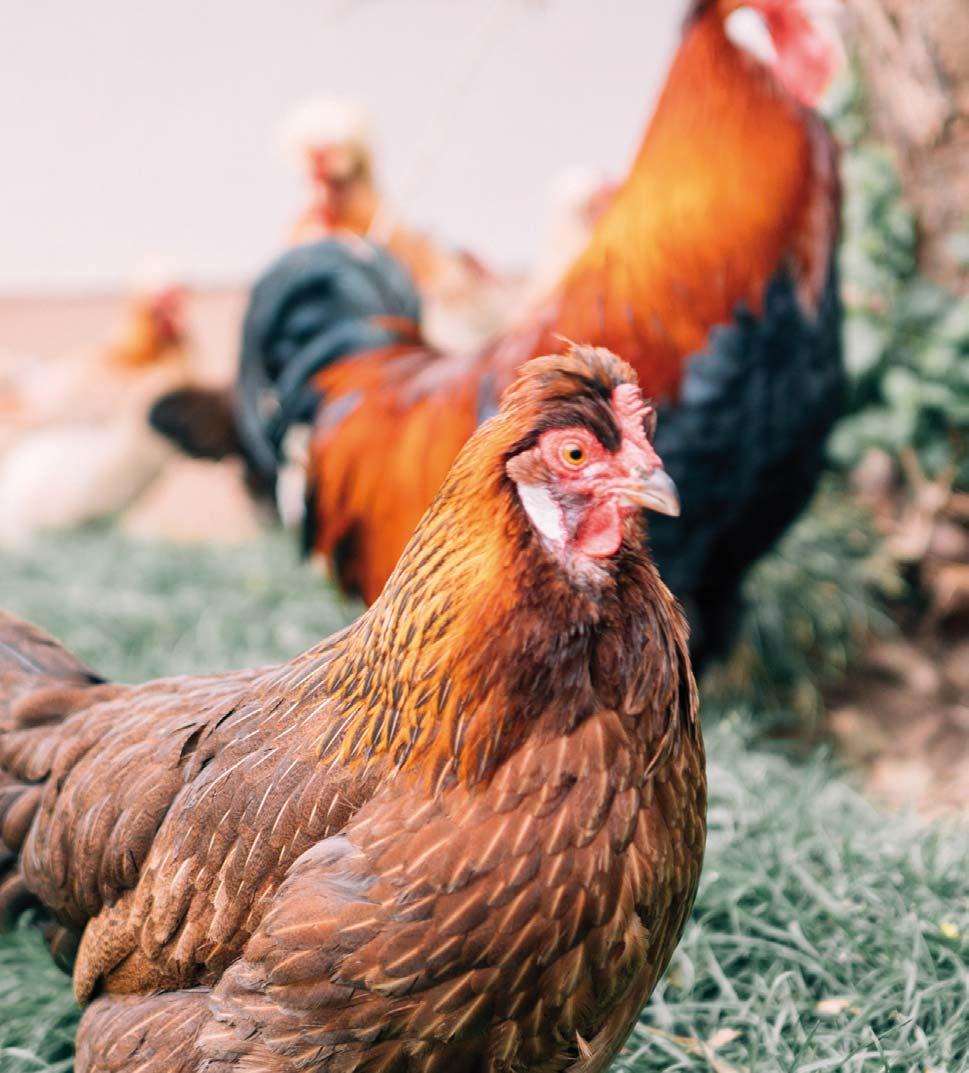
A step back
In 2011, Sonja Schossleitner moved to the Eislbauerhof in St. Gilgen on the Wolfgangsee for love even though she had no clue about farming. The product manager for golf clubs gave up her job and dove head first into unknown territory. Today, she and her husband Andreas run a total of nine Salzburg ark farms.
From a professional perspective, Sonja comes from a technical background. A 15-year professional career with an internationally renowned sports goods manufacturer is not something that can just be thrown away, at least that’s what you would think. Since Andreas came into her life in 2008, her perspective on the “how” of being and doing has radically changed. “My life has a completely different meaning”, says Sonja referring to her feeling of fi nding what she has been searching for after many years. The Eislbauerhof is not a classic farm but an ark farm, which is a place for breeding, housing, and presenting rare breeds of domesticated animals. Up here with a view of the Wolfgangsee are Pustertaler Sprinzen, Pinzgau cattle, and goats as well as Sulmtaler chickens and Altsteirer hens. The former was traditionally widespread as sturdy, robust cattle in the Alpine region. The post-war discord between Austrian and Italy led to Pustertal cattle being forbidden in these parts in the 1920s. South Tyrol was enemy territory.
“FOOD IS ALL ABOUT LIFE. BASTA.”
The farmer from St. Gilgen speaks with the deepest conviction and a touch of informal preaching about the philosophy of the ark farm and how important it is to not give up. At the turn of the century, there were over 30 farms in the nearby surroundings, and today, there are only fi ve. When they took over the farm of Andreas’ parents, the future was completely uncertain. With the limited size of the farm, “closing up shop” or “quitting” was the only thing that made sense to anonymous offi cials from afar. However, this did not even come into question for the two young, motivated farmers, and somehow, they came across the idea of switching to the model of an ark farm. This was a defi ning change of direction, and the consequent turning away from industrial farming was rather a bold step back that helped them move forward.
Rooms at the ark farm can be booked with breakfast. Travelers who do this or plan to do this can enjoy a delicious organic breakfast that is not as lavish and diverse as many guests would expect at fi rst glance but which offers more in terms of content than if it included 15 types of sausage and 10 varieties of cheese. “People always complain about the death of farming but then buy the cheapest noodles made with caged eggs from discount stores”, the farmer confi dently says. She thinks we must do something about this. The life motto of sustainability however goes far beyond the morning culinary offer. At the Schlossleitner’s farm, you will also fi nd fruit trees in the garden and furniture made from the farm’s own recycled goods. A new wardrobe for the guest room was created from old cabinet doors, and older tiles remain in the bathrooms. “In the interest of a sustainable recycling economy, you can’t participate in every designer trend”, says the farmer, and she’s right.
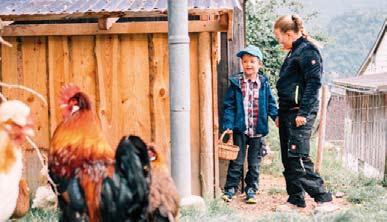
The guests, who mainly come from Germany, Austrian, and increasingly Switzerland, appreciate the not too intrusive offer on the farm as well as the many opportunities to experience exciting things around the Schafberg, Zwölferhorn, and Wolfgangsee. On the one hand, there are active guests who like to hike and ride bikes, and on the other, there are those interested in culture who want to explore the city of Salzburg but don’t want to stay in the inner city. They don’t want to actually travel anywhere but have found that “a paradise is right outside the door”.
